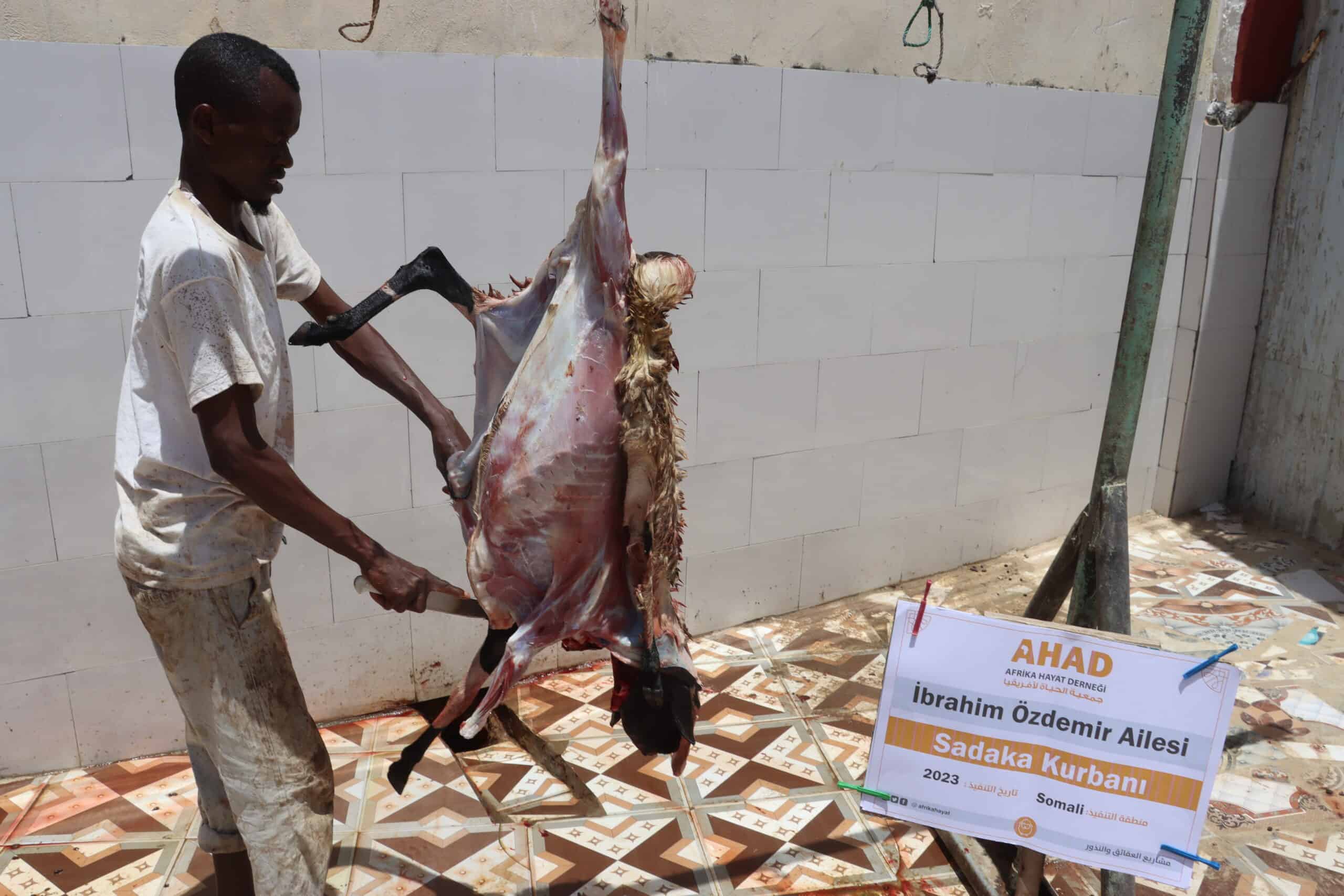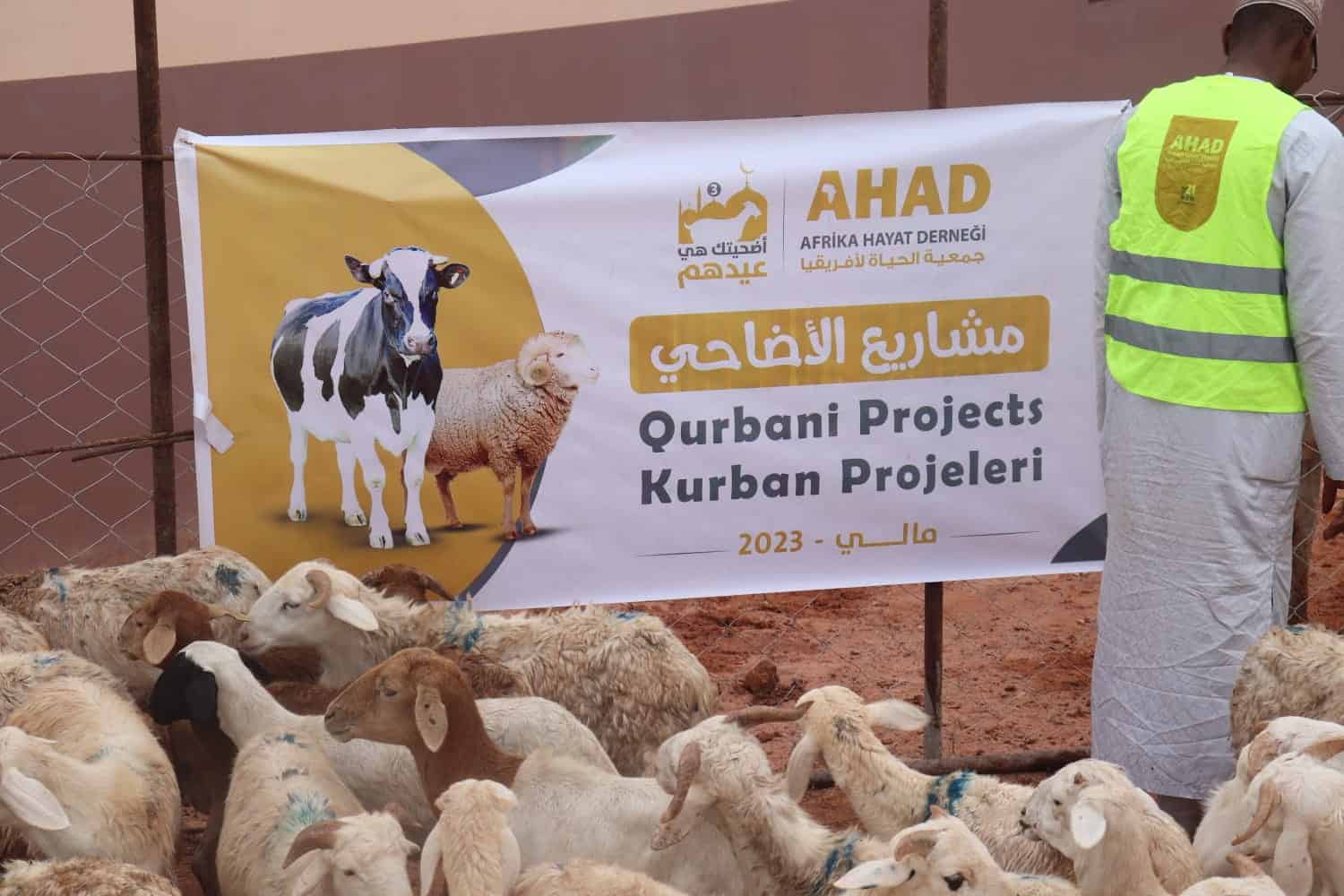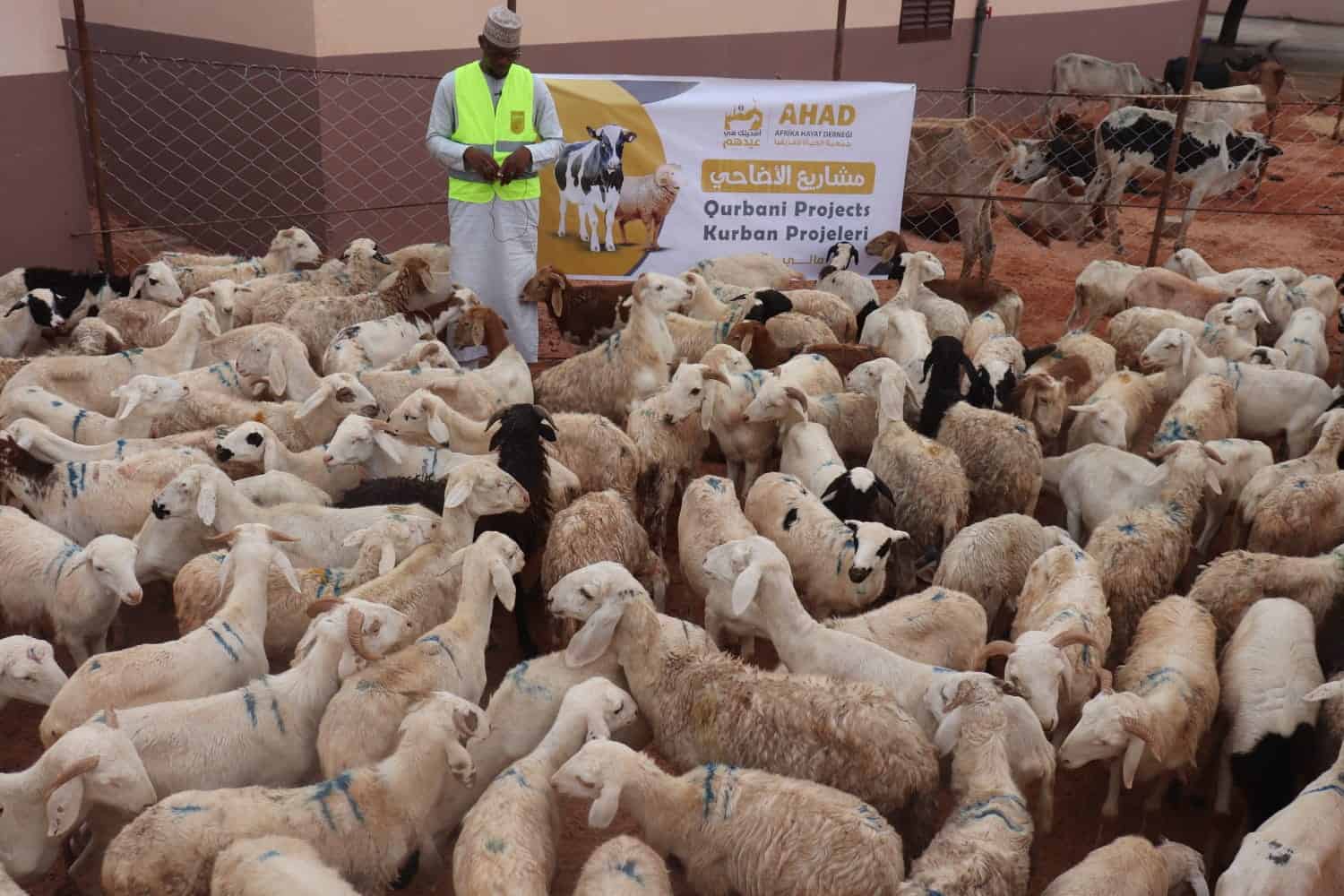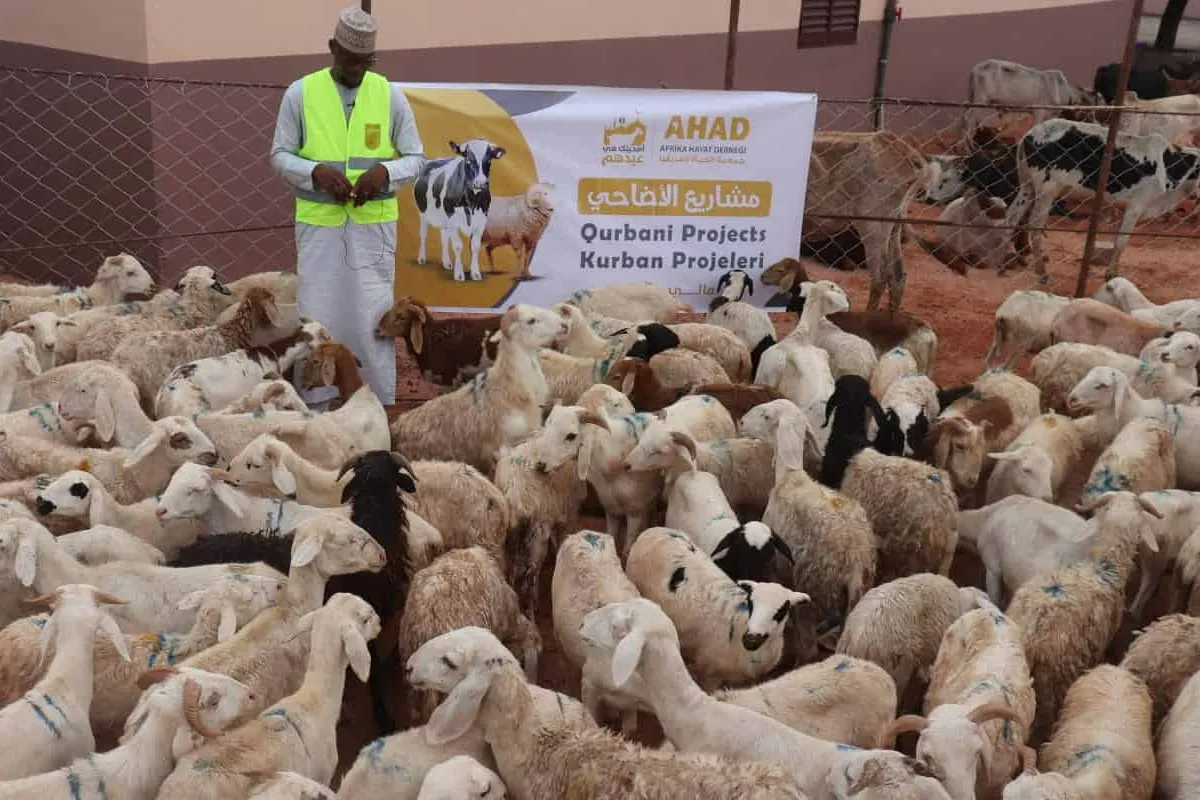الأضحية هي عبادة دينية تقوم بها المسلمون في أيام عيد الأضحى المبارك، حيث يقومون بذبح حيوان من الأنواع المحددة وتقسيم لحمه وتوزيعه على الفقراء والمحتاجين. تعد الأضحية تعبيرًا عن الطاعة لله والتضحية الشخصية، وتعزيزًا للروابط الإنسانية والتعاون بين أفراد المجتمع المسلم. وفي هذا المقال سنجيب عن سؤال هل الأضحية واجبة على المسلمين؟
معنى الأضحية وفقًا للتعاليم الدينية
الأضحية وفقًا للتعاليم الدينية في الإسلام يعني التضحية الشخصية والتقرب إلى الله عن طريق ذبح حيوان من الأنواع المحددة في أيام عيد الأضحى المبارك. يعتبر الأضحية تعبيرًا عن الطاعة لله والاستعداد للتضحية وتقديم المساعدة للفقراء والمحتاجين. يعزز الأضحية الروابط الإنسانية والتعاون بين أفراد المجتمع المسلم.
هل الأضحية واجبة على المسلمين
يعتبر الأضحية واجبًا مستحبًا في الإسلام للمسلمين القادرين عليها. فتأدية الأضحية من أفضل الأعمال الصالحة التي يمكن أن يقوم بها المسلم في عيد الأضحى المبارك. حيث يجب على المسلم أن يجتهد في اختيار الحيوان المناسب ويحرص على اتباع أحكام وضوابط الأضحية لكي تكون صحيحة ومقبولة عند الله تعالى.
ضوابط وشروط الأضحية
تتضمن ضوابط وشروط الأضحية عدة أمور، منها أن تكون الأضحية من الحيوانات المسموح بها ومن الأنواع التي تعتبر من سبعة أنواع الأضاحي، وأن يتم ذبح الحيوان بواسطة مسلم وعلى يد طاهرة وبطريقة صحيحة وفي الأوقات المحددة. كما يتوجب أن يكون الحيوان خالصًا لوجه الله وأن يكون في حالة صحية جيدة وأن تؤخذ حصتها من الأضحية للفقراء والمحتاجين.

هل الأضحية واجبة على المسلمين
شروط صحة الأضحية
تتضمن شروط صحة الأضحية عدة أمور، أهمها أن يكون الحيوان خالصًا لوجه الله، وأن يكون من الأنواع المسموح بها للأضاحي. كما يجب أن يكون الحيوان في حالة صحية جيدة وليس به عيوب مبينة. يجب أن يتم ذبح الحيوان بواسطة مسلم، وعلى يد طاهرة، وبطريقة صحيحة وذلك في الأوقات المحددة.
من يجب عليه أداء الأضحية
من يجب عليه أداء الأضحية هو كل مسلم بالغ وعاقل، يمتلك القدرة المالية لذلك. وتشمل هذه الفئة الأشخاص الذين لديهم إمكانية شراء وتضحية بحيوان لله تعالى. إن أداء الأضحية هو فرض مستحب ويعتبر من أحد العبادات التي يقرب بها المسلم من الله ويعبر عن تضحيته وتواضعه أمامه.
أحكام عن الأضحية
تشمل أحكام الأضحية في الإسلام عدة نقاط مهمة. تشمل هذه النقاط نوعية الحيوانات المسموح بها للأضحية، حيث يجب أن يكون الحيوان سليمًا ولا يعاني من أي عيوب. كما يتم توضيح كيفية ذبح الأضحية بشكل صحيح، حيث يجب أن يتم الذبح بسم الله وبطريقة تضمن السلامة والإيثار للضحية.
نوعية الحيوانات المسموح بها للأضحية
تتميز نوعية الحيوانات المسموح بها للأضحية ببعض الشروط الواجب توفرها. يجب أن يكون الحيوان سليمًا وخاليًا من العيوب المرئية والباطنية. ينصح أن يكون الحيوان من الأغنام أو الأبقار أو الماعز، ولا يجوز إجراء الأضحية على الأشياء الأخرى مثل الخراف والأبقار الشبراوية. كما يشترط أن يكون الحيوان بمقدار يوم من الأيام.
كيفية ذبح الأضحية بشكل صحيح
يجب أن يتم ذبح الأضحية بشكل صحيح وفقًا للتعاليم الدينية. يجب أن يكون الذبح بواسطة شخص ماهر ومؤهل لذلك، ويتم ذبح الحيوان بوضعه باتجاه القبلة وشرب بعض الماء والنيّة الصادقة. يتم قطع الحبل الهوائي والأوعية الدموية الرئيسية في الرقبة بسرعة وفأس حادة لضمان ذبح سريع وألم أقل للحيوان.
الفوائد والمزايا الدينية للأضحية
يقدم عيد الأضحى فوائد ومزايا دينية عديدة. فهو يعزز الوحدة والتضامن في المجتمع المسلم، حيث يشارك الناس في هذه الفعالية الدينية المهمة معًا. يعتبر الإقرار بتواجد الله وتقديره لنعمه الكثيرة أيضًا جزءًا من هذه الفوائد. إضافة إلى ذلك، يساهم الأضحية في تعزيز الروابط الاجتماعية وتعميق التفاهم والتعاطف بين الناس. لذا، يمكن اعتبار عيد الأضحى فرصة لتقوية العلاقات الاجتماعية والروحية في المجتمع المسلم.
دور الأضحية في تعزيز الثقة والتضامن المجتمعي
تعتبر الأضحية فرصة لتعزيز الثقة والتضامن في المجتمع المسلم. حيث يشارك الناس في توزيع اللحم والمساعدة للمحتاجين، مما يعزز الروابط الاجتماعية ويعمق التفاهم والتعاطف بين أفراد المجتمع. يعتبر هذا العمل الخيري والإحسان نموذجًا للتعاون والمساعدة المتبادلة بين المسلمين، ويعزز التلاحم في المجتمع.

هل الأضحية واجبة على المسلمين
العوائد الروحية لتقديم الأضحية
تتمحور العوائد الروحية لتقديم الأضحية حول تعبير المسلمين عن تقديرهم وامتنانهم لله تعالى وإظهار التضحية والتفاني في سبيله. من خلال تقديم الأضحية، يعزز المسلمون روابطهم الروحية مع الله ويعبدونه بطريقة تكون بمثابة تذكير بتواضعهم واعترافهم بأن كل شيء يأتي من الله وبإرادته. كما تعزز الأضحية القدرة على الانضباط الروحي والقوة الشخصية والتقوى الدينية.
إشكاليات وتساؤلات حول الأضحية
قد يطرح بعض المسلمين تساؤلات وإشكاليات حول الأضحية، مثل ما إذا كانت واجبة على المسلمين في العصر الحديث، وهل بإمكانهم تأدية الأضحية بطرق بديلة. هذه التساؤلات يمكن أن ترتبط بالتحديات الحالية التي يواجهها الناس، مثل الصعوبات الاقتصادية أو الظروف الصحية. ينبغي على المسلمين استشارة العلماء المختصين للحصول على إجابات على تساؤلاتهم والتوجيه الصحيح في ذبح الأضحية.
هل الأضحية واجبة على المسلمين في العصر الحديث؟
تثار تساؤلات حول ما إذا كانت الأضحية ما زالت واجبة على المسلمين في العصر الحديث، نظرًا للتحديات والصعوبات التي يواجهها الناس في الوقت الحاضر. ينبغي على المسلمين الاستشارة مع العلماء المختصين للحصول على إجابات دقيقة على هذا السؤال والتوجيه الصحيح فيما يتعلق بتنفيذ الأضحية.

هل الأضحية واجبة على المسلمين
هل بإمكان المسلمين تأدية الأضحية بطرق بديلة؟
بالنسبة للمسلمين الذين يواجهون صعوبات في تأدية الأضحية بطرق التقليدية، هناك بعض البدائل التي يمكن أن ينظروا إليها. يمكن للمسلمين التبرع بمبلغ مالي للمساهمة في توزيع اللحوم على الفقراء والمحتاجين في مجتمعهم. كما يمكنهم تأدية الأضحية في البلدان الفقيرة أو المناطق المحتاجة بالتعاون مع المنظمات الخيرية الموثوقة. يجب على المسلمين استشارة العلماء المختصين لمعرفة ما إذا كانت هذه البدائل مقبولة وتستوفي الأحكام الشرعية.
الختام
في الختام، يمكن القول أن الأضحية واجبة على المسلمين القادرين على تأديتها، وتشغل مكانة هامة في الإسلام. الأضحية ليست مجرد تقليد قديم، بل هي فرصة للفرح والتضامن وتعزيز الروابط الاجتماعية. يجب على المسلمين اتباع الشروط الشرعية لتأديتها بشكل صحيح، ويمكنهم اللجوء إلى بدائل مقبولة في حال عجزهم عن تأديتها بالطرق التقليدية.
نصائح لأداء الأضحية بشكل صحيح
قم بالتحضير المسبق للأضحية واختيار الحيوان المناسب وفقًا للشروط الشرعية.
تأكد من صحة ونظافة الأضحية وعدم وجود عيوب فيها.
قم بذبح الأضحية بشكل صحيح عن طريق اتباع الأساليب الشرعية وتوجيهات الذبح.
توزع اللحم والأضاحي على الفقراء والمحتاجين والجيران والأقارب لتعزيز التضامن والروابط الاجتماعية.
حاول أن تكون حاضرًا ومشاركًا في عملية توزيع الأضاحي وتأكد من وصولها لمن يستحقها بشكل عادل ومنظم.
الأضحية وتعزيز الروابط الاجتماعية
تلعب الأضحية دورًا هامًا في تعزيز الروابط الاجتماعية في المجتمعات المسلمة. من خلال توزيع اللحم والأضاحي على الفقراء والمحتاجين والجيران والأقارب، يتم تعزيز التضامن وتنمية الروابط الاجتماعية بين أفراد المجتمع. بالإضافة إلى ذلك، يشعر الأفراد بالسعادة والارتياح عند المشاركة في عملية توزيع الأضاحي ومساعدة الآخرين.
يمكنك زيارة موقع جمعية AHAD للاطلاع على المشاريع التي تقوم بها.

